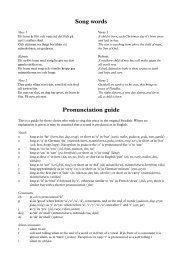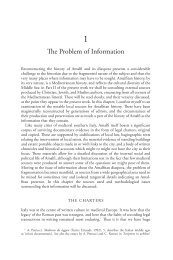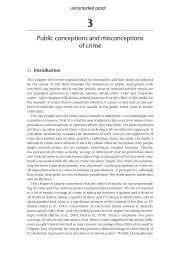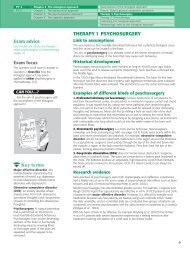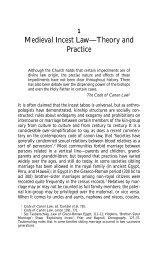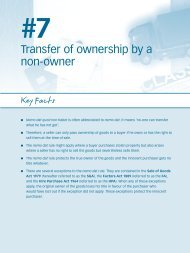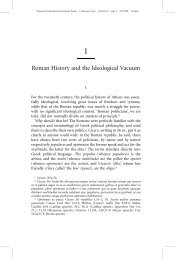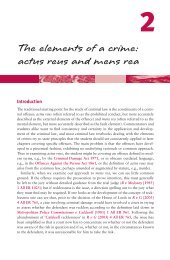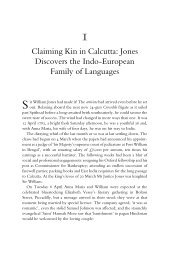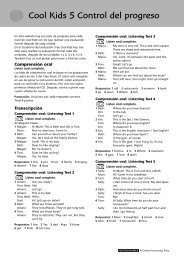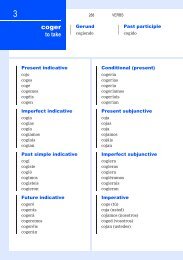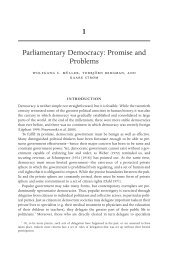Chapter 11 The Tort of Negligence - OED-update - Oxford University ...
Chapter 11 The Tort of Negligence - OED-update - Oxford University ...
Chapter 11 The Tort of Negligence - OED-update - Oxford University ...
Create successful ePaper yourself
Turn your PDF publications into a flip-book with our unique Google optimized e-Paper software.
<strong>Chapter</strong> <strong>11</strong> <strong>The</strong> <strong>Tort</strong> <strong>of</strong> <strong>Negligence</strong> 353<br />
<strong>The</strong> requirement <strong>of</strong> a special relationship restricts liability to within reasonable grounds,<br />
limiting the number <strong>of</strong> claims that may be made against a defendant who makes a negligent<br />
statement which could potentially affect thousands <strong>of</strong> people.<br />
Key Concept A claim for pure economic loss caused by a negligent statement may<br />
be successful if there is proximity between the parties, i.e. a ‘special relationship’ between<br />
the parties.<br />
To ensure that persons making statements would not be under a duty <strong>of</strong> care to potentially<br />
large numbers <strong>of</strong> people whom they might foresee would rely on their statements, the<br />
House <strong>of</strong> Lords restricted the principles set out in Hedley Burne in the later case <strong>of</strong> Caparo<br />
Industries v Dickman (1990). <strong>The</strong> number <strong>of</strong> potential claimants that fell within the necessary<br />
proximity (i.e. a special relationship) was further restricted.<br />
<strong>The</strong> court decided that, in order for there to be a special relationship between the<br />
defendant and the claimant, it was essential that:<br />
• <strong>The</strong> defendant knew that the statement would be communicated to the claimant<br />
(either a named or unnamed individual or an identifiable group <strong>of</strong> persons).<br />
• <strong>The</strong> advice was given specifically in connection with an identifiable transaction or<br />
transactions <strong>of</strong> a particular kind.<br />
• <strong>The</strong> defendant reasonably anticipated that the claimant was likely to rely on the<br />
statement for the purpose <strong>of</strong> the transaction without seeking further independent<br />
advice.<br />
Caparo Industries v Dickman (1990)<br />
Facts: <strong>The</strong> claimants, Caparo, owned shares in Fidelity plc. Caparo read and relied on the<br />
statutory audited accounts <strong>of</strong> Fidelity plc, prepared by the defendants, Dickman, when making<br />
their decision to purchase additional shares in Fidelity plc and then to mount a successful<br />
takeover bid. However the accounts were inaccurate and showed a pr<strong>of</strong>it <strong>of</strong> £1.3m instead <strong>of</strong> a<br />
loss <strong>of</strong> £465,000. Caparo sued Dickman for negligent misstatement.<br />
Decision: <strong>The</strong> House <strong>of</strong> Lords stated that the claimants did not owe a duty <strong>of</strong> care to the claimants<br />
as there was not a sufficient degree <strong>of</strong> proximity between them. <strong>The</strong> accounts had not been<br />
prepared specifically for the claimant to rely on when deciding to purchase additional shares.




